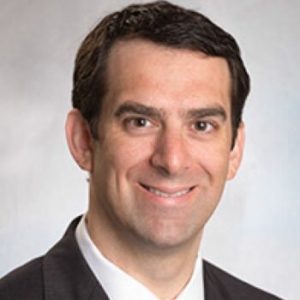The patient did not look happy to see me. “Great, another doctor,” she said. “Where’d you come from?”
Explore This Issue
ACEP News: Vol 32 – No 10 – October 2013“He sent me,” I said, gesturing over my shoulder to the attending.
For some reason, that prompted her to go from scowling to smiling. “Oh! You’re a special kind of doctor,” she said – and from there on, our interaction was warm and affectionate. I was confused, but I went with it. It wasn’t until the next morning, during my daily pre-rounding – I was on an off-service medicine rotation – that I realized what had happened. When I walked in to say “Good morning!,” she greeted me as “my guardian angel doctor.”
I’m sure I looked puzzled, but she went on: “I knew you were special the moment we met because when we met, you said HE sent you.”
She pointed skyward. “When you said that, I knew you were meant to be my doctor.”
It was only then I realized that she had thought I had been pointing not to my attending, but to the heavens. You know, toward her Lord and personal savior. Just as I was about to correct her, I saw her joyous face and stopped myself. I didn’t have the heart to tell her I’m not exactly the church-going type. “I did say that, didn’t I?” I said, smiling, realizing that our miscommunication in the emergency department had provided an unexpected windfall.
A bond had been made, and it worked for us both.
In medicine, religion more often creates a barrier between doctors and patients than an alliance, since we’re often treating patients from backgrounds different from our own. While patient variety is one of the reasons many doctors were attracted to emergency medicine in the first place, it also presents challenges. Many doctors think of themselves as “culturally competent,” but few of us truly are.
Studies show that health care providers are aware of cultural issues and possess relevant knowledge, but are often unable to act on them in practice. Working in a hospital in a neighborhood where approximately 150 languages are actively spoken, with patients representing religions I’ve never even heard of (and I was raised in San Francisco, where they literally just go ahead and make up religions), I am forced to face my cultural incompetence on a daily basis.
If we’re being honest with ourselves, we have to confess that self-assessments of cultural understanding are probably about as accurate as judging one’s own sense of humor. Let’s face it, we could all use a little bit of work.
First, make no assumptions. If a patient is not dressed in overt religious garb, or religious beliefs are not explicitly stated in the medical record, never presume anything. If, however, a patient is dressing the part and is literally wearing religion on his or her sleeves, asking, “Are there any religious concerns or considerations that would affect my care for you?” not only earns you respect, but makes your job easier. For example, Orthodox Jewish families prefer to be out of the hospital by sundown on Friday evening for Shabbat, if possible. Once you have demonstrated your willingness to do your best (without making any promises), families and patients will give you that respect back, allowing you to do your job without concern that you “just don’t get it.” Saying, “I know that sundown is soon,” actually buys you time.
Further, being tuned in to a patient’s religiosity can actually improve the care you provide.
Recognizing hypoglycemia in a patient on sulfonylureas on the eve of Ramadan can potentially prevent a future emergency department visit or even save a life. Advise patients who plan to fast for Ramadan to discuss their medications with their primary care provider to see whether a change in medication or dose should occur. Finally, there is the issue of faith versus science. Whether or not we choose to acknowledge it, a patient’s religiosity can influence overall health, for better or worse.
On the positive side, some research suggests that chronically ill patients who are religious are less depressed. On the negative side, some studies show that intense belief decreases adherence to life-saving medication regimens. The debate has raged for centuries but perhaps was never better captured than by 10th-11th century poet Omar Khayyam, who wrote, “Myself when young did eagerly frequent/Doctor and Saint and heard great argument/About it and about: but evermore/Came out by that same door/as in I went.”
We can all agree that it is not our place to engage our patients in this debate in philosophical terms. But we are kidding ourselves if we are blind to its presence and potential puissance, and we ignore this issue at our own peril. The question is, “What should we do about it in the limited time we have in the emergency department?” What guides me is the following advice my medical school class received from one of the investigators at the New York City Office of the Chief Medical Examiner. He advised that we should always acknowledge the values that the patients and their families have clearly verbalized or expressed in some way.
“I never bring up religion or God to a family in mourning,” he said. “But if they mention religion or God at any point during our conversation, I never fail to mention the importance of their faith in God at some point during that very same conversation.”
Dr. Faust is a second year Emergency Medicine resident at Mount Sinai Hospital and Elmhurst Hospital in New York City. He tweets about #FOAMed and classical music @jeremyfaust.
Pages: 1 2 3 | Multi-Page





No Responses to “Religious Experiences in the ED”